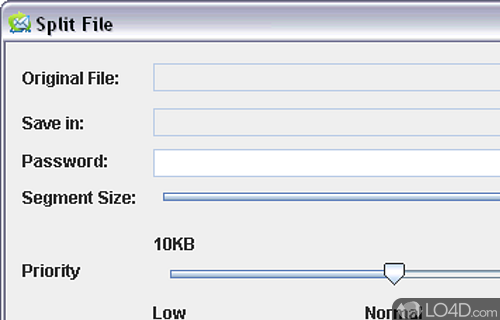
OpenP2M is a freeware file sharing app and email client, developed by Glauberpires for Windows.
The download has been tested by an editor here on a PC and a list of features has been compiled; see below.
Store and share content from your email account
OpenP2M is a software that lets you store and share files by means of your email account. This is known as PDM, "peer to mail". PDM is similar to P2P protocol, but using the mail server as mediator.
Features of OpenP2M
- Allows to simultaneously download from many e-mail or ftp accounts in only one program.
- Allows to upload many files simultaneously, directly or through smtp servers.
- Allows you to cryptography your passwords (RSA 512 bits).
- Allows you to save accounts to a favorities system.
- Allow the user to use Proxy.
- Be minimized to the System-Tray.
- Feature to forward e-mails.
- It Has a System to Split and Merge files (with or without passwords).
- It has an login and password generator (with random).
- It saves a histoy of the downloaded files to preventto redownload files by accident.
- Option to open a file after the download (.mp3, .bat, .exe).
- Option to turn your computer off after the download.
Compatibility and License
OpenP2M is provided under a freeware license on Windows from email software with no restrictions on usage. Download and installation of this PC software is free and 0.185 is the latest version last time we checked.
What version of Windows can OpenP2M run on?
OpenP2M can be used on a computer running Windows 11 or Windows 10. It runs on both 32-bit and 64-bit systems with no dedicated 64-bit download provided.
Filed under:
- OpenP2M Download
- Free Email Software
- Open source and GPL software
- File Sharing Software
